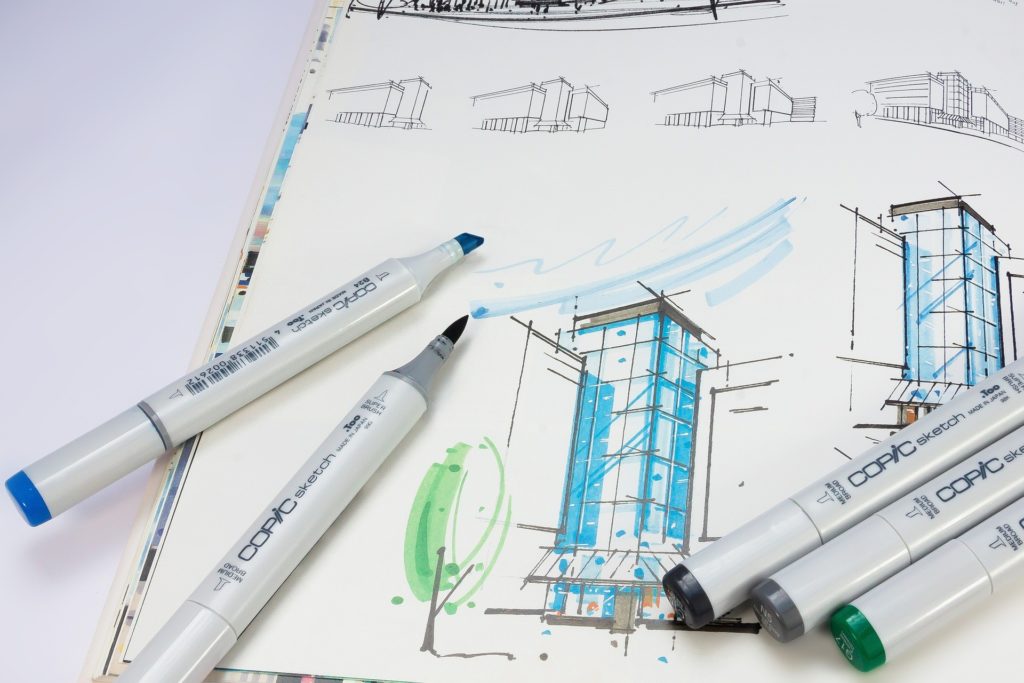 The Spanish Supreme Court has recently ruled on the concept of originality in respect of architectural works, and for the first time has established clear and specific guidelines for applying copyright protection to works of this nature.
The Spanish Supreme Court has recently ruled on the concept of originality in respect of architectural works, and for the first time has established clear and specific guidelines for applying copyright protection to works of this nature.
The situation which gave rise to the proceedings is very common in the architectural sector. An architect (the claimant at first and second instance) was commissioned by a property developer to draw up architectural plans for a hotel in Barcelona. On failing to obtain authorisation from the planning authorities, the developer contracted two other architects (the defendants at first and second instance and appellants in the cassation appeal proceedings) to prepare a second proposal in keeping with municipal planning regulations. The claimant and defendants signed an agreement whereby the former waived 50% of the project management, thus sharing the assignment with the other two. A second project was drawn up and signed by the three architects. It was nevertheless halted due to the developer’s cash shortfall. Two years later, the defendants presented a third project that was substantially identical to the previous one. On this occasion, however, it was not signed by the claimant. This prompted the claimant to bring proceedings against the architects who had signed the third project. He essentially claimed that it constituted a collaborative work, provided for in Article 7 of the Spanish Copyright Act, and that the rights in the work should therefore be divided equally among the architects. The claimant demanded to be recognised as co-author of the project and claimed the fees to which he was entitled as such.
In the Court’s view, architectural works are functional works which are only protected by copyright in the event that they are “unique”. Over and above any aesthetic or practical benefits, the work must possess “novel character that enables it to be distinguished from pre-existing works”. Copyright does not apply to “ordinary” buildings that do not have the slightest degree of unique or distinctive character.
The findings of the judgment could not be more eloquent: “Not every architectural project possesses creativity per se, and that creativity is not presupposed by the size of the building or the fact that it is intended to be a hotel. Not every architectural project or building is an original work, protected by copyright”.
The Court denied that the claimant is the author with respect to the work on which he had collaborated with the defendants. According to the Court, where there is a collaborative work containing parts that meet the originality requirement and parts that do not, and different architects are responsible for the various parts, “those who have made the original contributions to the architectural project shall be considered as authors protected by copyright legislation, whilst those responsible for the parts that are devoid of originality shall not be considered or protected as such, notwithstanding any contractual rights deriving from the assignment and the work performed in its regard”.
In this case, the Court held that the claimant’s contribution did not possess the necessary creativity to enable him to be considered as author, unlike the part for which the defendants were exclusively responsible –essentially limited to the volumetric composition, facade and outdoor spaces–, which was deemed original.
This judgment is extremely significant because not only does it consolidate the general concept of originality that a creation must possess in order for it to be classed as a work, but it also establishes rather clear guidelines for specifically applying that concept to architectural projects.
To make sure you do not miss out on posts from the Kluwer Copyright Blog, please subscribe to the blog here.
________________________
To make sure you do not miss out on regular updates from the Kluwer Copyright Blog, please subscribe here.


